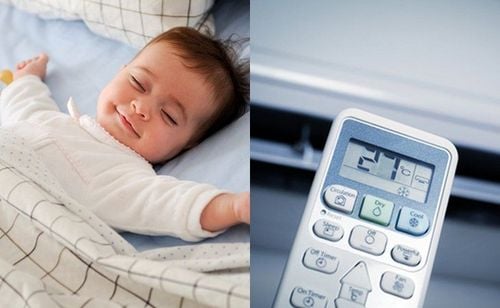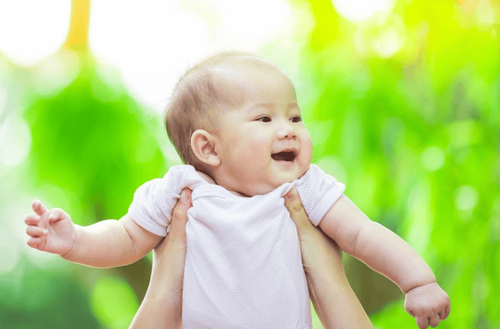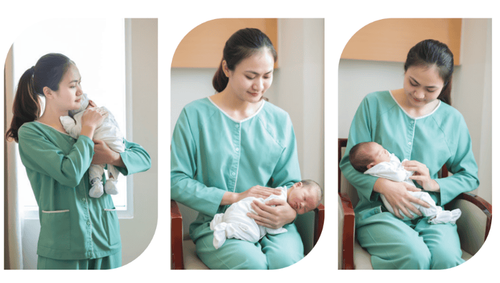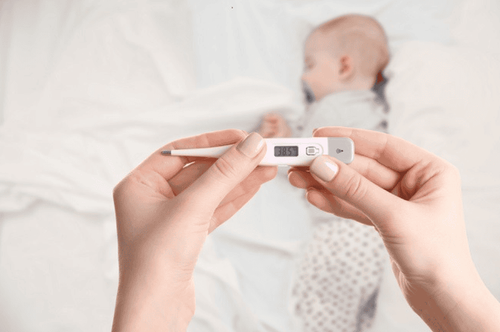This is an automatically translated article.
The article was consulted with Dr. Nguyen Hung Tien - Department of Pediatrics - Neonatology, Vinmec Hai Phong International General Hospital.During the hospital stay, the child was affected by many influences such as noise, light and medical procedures such as: blood collection, injection, intravenous infusion and medication... Besides, the child also lacked the affection of parents. mothers and families. Some children due to medical conditions need to fast or eat with a nasogastric tube...
1. Issues to monitor and take care of
When children are discharged from the hospital, they need special care to restore their health and catch up with age-appropriate growth. Therefore, mothers need knowledge and skills to properly care for their newborns. Issues to monitor and take care of the newborn include:Respiratory Body temperature Nutrition Skin, eye, navel hygiene Skin, eye, navel hygiene Schedule vaccinations, follow-up doctor's appointments 1.1 Respiratory monitoring Closely monitoring rhythm breathing, skin color, breathing pattern of the baby
Newborns have a normal breathing rate ranging from 40-60 times/minute, breathing rhythm is regular, if the baby is breathing slower than 40 times/minute or breathing faster than 60 times// minutes, or irregular breathing, wheezing, or chest tightness is abnormal. The structure of the newborn's airway is very soft and the trachea is narrow, so parents need to pay attention to the position of holding and lying the baby so that the airway is not bent or too supine. Place a pillow under the shoulders, keep the baby's neck in an intermediate position, assess good posture by breathing softly, evenly, and the baby is sleeping soundly. Premature babies often have short pauses in breathing <15 seconds, when they need stimulation to breathe, the skin-to-skin method should be used to prevent and prevent apnea. If the apnea is >15s, the child is cyanotic, or the apnea is short but continuous, it is necessary to stimulate the child to breathe, take the child to a medical facility. Observe the child's skin color: Normally, the child's skin is pink, the lips and extremities are pink. If the child's skin is pale, pale or purple, take the child to a medical facility. If the child has a stuffy nose, sneezing, runny nose, it is necessary to drop the child's nose several times a day with warm physiological saline. If the child coughs a lot, wheezes, the child needs to be taken to the doctor.

Theo dõi nhịp thở của trẻ
1.4 Care for the skin, navel, eyes Skin care : Bathe the baby daily with warm water 37°C Prevent baby diaper rash : Newborn skin is thin, vulnerable, red, sore. Therefore, do not let the baby's skin stay in contact with wet diapers for a long time, change the diaper often for the child, when the child has a rash, apply medicine according to the instructions of the doctor. Umbilical care: Clean the baby's umbilical cord daily until the umbilical cord falls off and dries with 70° alcohol and sterile cotton. Do not apply any ointments or powders to the baby's navel. Need to take the child to the doctor when one of the following: the following symptoms:
The baby's navel has a bad smell or oozes yellow or bloody discharge. Navel cystic, oozing water. The skin around the navel is red and swollen. The umbilicus slows down after 3 weeks. Clean the baby's eyes, and monitor whether the eyes are red, swollen, pus or not? 1.5 Oral hygiene Clean children's mouth regularly with cooled boiled water or physiological saline. Avoid letting your child's mouth have a lot of thrush, milk residue,...
1.6 Other follow-ups Take your child to vaccinations on time. Monitor the mental and motor development of children according to the right age. Periodic re-examination according to the doctor's appointment (Eye examination for premature babies weighing less than 2000 grams at birth when the child is 4 weeks old, children with cardiovascular disease...). Newborns should have regular health checks at medical facilities (1 month, 6 months, 12 months, 18 months, 24 months...)
2. Danger signs in babies

Vàng da ở trẻ sơ sinh
Breastfeed less or stop breastfeeding. Convulsions or spasms. Sleep is hard to wake up. Wheezing when lying still, wheezing. High fever or hypothermia. Bleeding anywhere. Dark or early jaundice (within 24 hours of age). The child vomits continuously, and the abdomen is distended. After birth, babies need time to adapt to their surroundings, so they need special attention, care and monitoring from parents. When a child shows any of the above abnormal signs, the child should immediately go to a medical facility for examination, monitoring and timely intervention.
As a key area of Vinmec Health system, Pediatrics Department always brings satisfaction to customers and is highly appreciated by industry experts with:
Gathering a team of top doctors and nurses in Pediatrics : consists of leading experts with high professional qualifications (professors, associate professors, doctorates, masters), experienced, worked at major hospitals such as Bach Mai, 108.. Doctors All doctors are well-trained, professional, conscientious, knowledgeable about young psychology. In addition to domestic pediatric specialists, the Department of Pediatrics also has the participation of foreign experts (Japan, Singapore, Australia, USA) who are always pioneers in applying the latest and most effective treatment regimens. . Comprehensive services: In the field of Pediatrics, Vinmec provides a series of continuous medical examination and treatment services from Newborn to Pediatric and Vaccine,... according to international standards to help parents take care of their baby's health from birth to childhood. from birth to adulthood Specialized techniques: Vinmec has successfully deployed many specialized techniques to make the treatment of difficult diseases in Pediatrics more effective: neurosurgery - skull surgery, stem cell transplantation. blood in cancer treatment. Professional care: In addition to understanding children's psychology, Vinmec also pays special attention to the children's play space, helping them to have fun and get used to the hospital's environment, cooperate in treatment, improve the efficiency of medical treatment.
Please dial HOTLINE for more information or register for an appointment HERE. Download MyVinmec app to make appointments faster and to manage your bookings easily.













